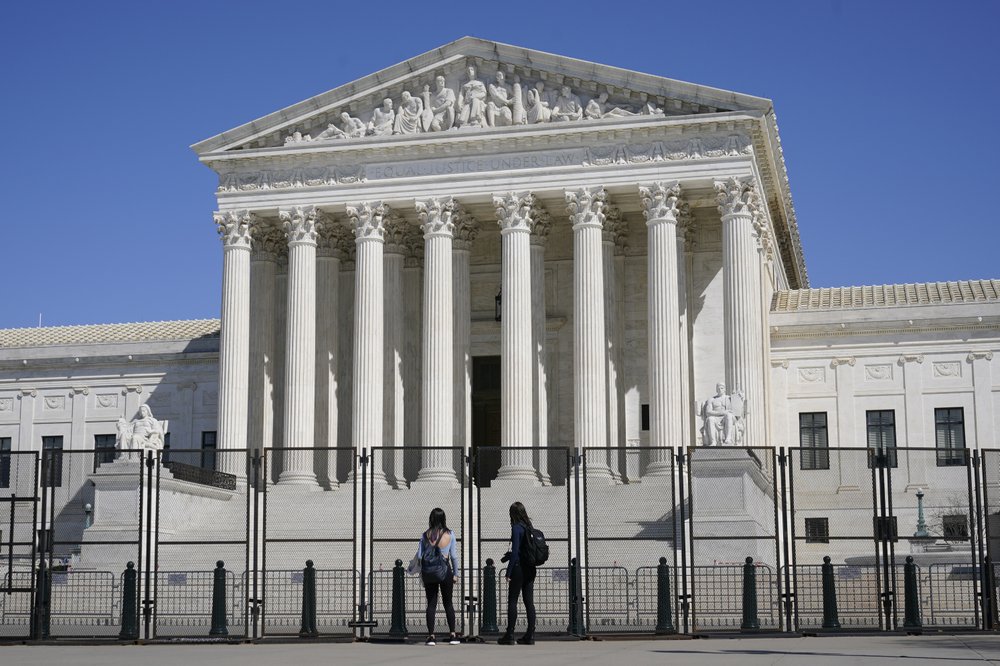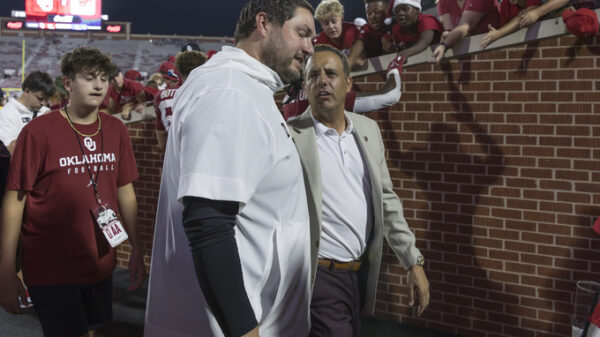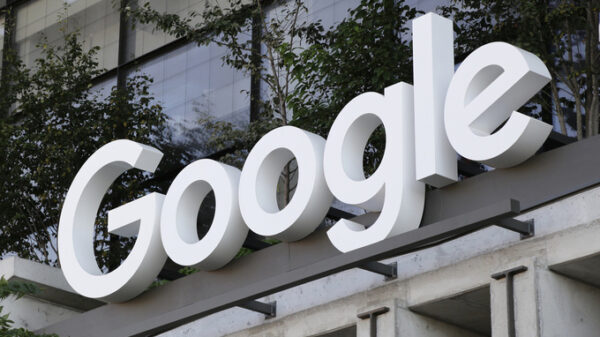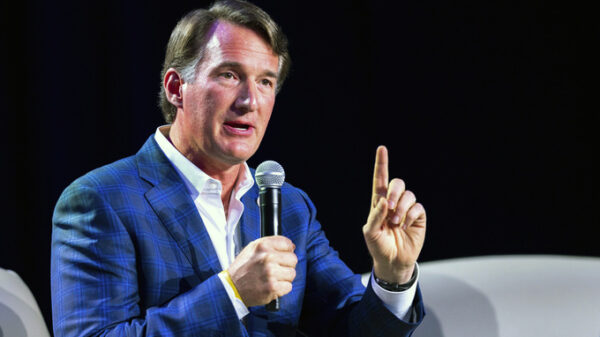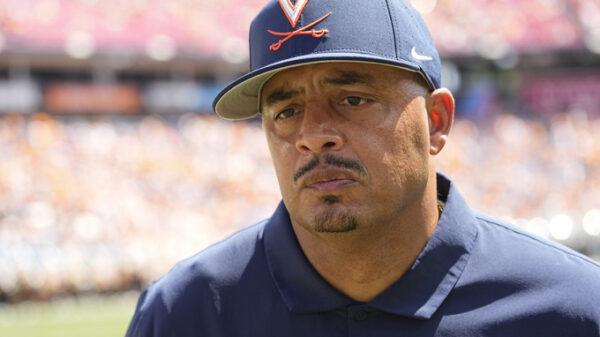FILE – In this March 21, 2021, file photo people view the Supreme Court building from behind security fencing on Capitol Hill in Washington after portions of an outer perimeter of fencing were removed overnight to allow public access. A Supreme Court case being argued this week amid March Madness could erode the difference between elite college athletes and professional sports stars. (AP Photo/Patrick Semansky, File)
WASHINGTON (AP) — The NCAA and former college athletes are getting ready to play ball at the Supreme Court.
With the March Madness basketball tournament ongoing, the high court will hear arguments Wednesday in a case about how colleges can reward athletes who play Division I basketball and football. The NCAA says if the former college students who brought the case win, it could erase the distinction between professional and college sports.
Under current NCAA rules, students can’t be paid, and the scholarship money colleges can offer is capped at the cost of attending the school. The NCAA defends its rules as necessary to preserving the amateur nature of college sports.
But if the Supreme Court sides with the former students, those caps on educational benefits could go away. If individual athletic conferences agree, schools could offer tens of thousands of dollars in education benefits for things such as postgraduate scholarships, tutoring, study abroad opportunities, vocational school payments. That could create a bidding war for the best players.
The former athletes who brought the case, including former West Virginia football player Shawne Alston, say the NCAA’s current rules deprive students of the ability to be rewarded for their athletic talents and hard work because most of them will never play professional sports. So far, the former players have won every round of the case. Lower courts agreed that the NCAA’s rules capping the education-related benefits schools can violate a federal antitrust law.
Whatever happens at the high court, how college athletes are compensated is already likely changing. The NCAA is in the process of trying to amend its longstanding rules to allow athletes to profit from their names, images and likenesses. That would allow athletes to earn money for things like sponsorship deals, online endorsement and personal appearances. For some athletes, those amounts could dwarf any education-related benefits.
The former college athletes have some big-time supporters. The players associations of the NFL, NBA and WNBA are all urging the justices to side with the former athletes, as is the Biden administration.
The justices are hearing arguments by phone in the case as they have been doing for almost a year because of the coronavirus pandemic. They will almost certainly issue a decision in the case before they leave for their summer break at the end of June.
The NCAA wasn’t happy with the outcome the last time its rules were before the Supreme Court. In 1984, the high court rejected NCAA rules restricting the broadcast of college football. The justices’ ruling transformed college sports, helping it become the multibillion-dollar business it is today.
Copyright 2020 Associated Press. All rights reserved.





















